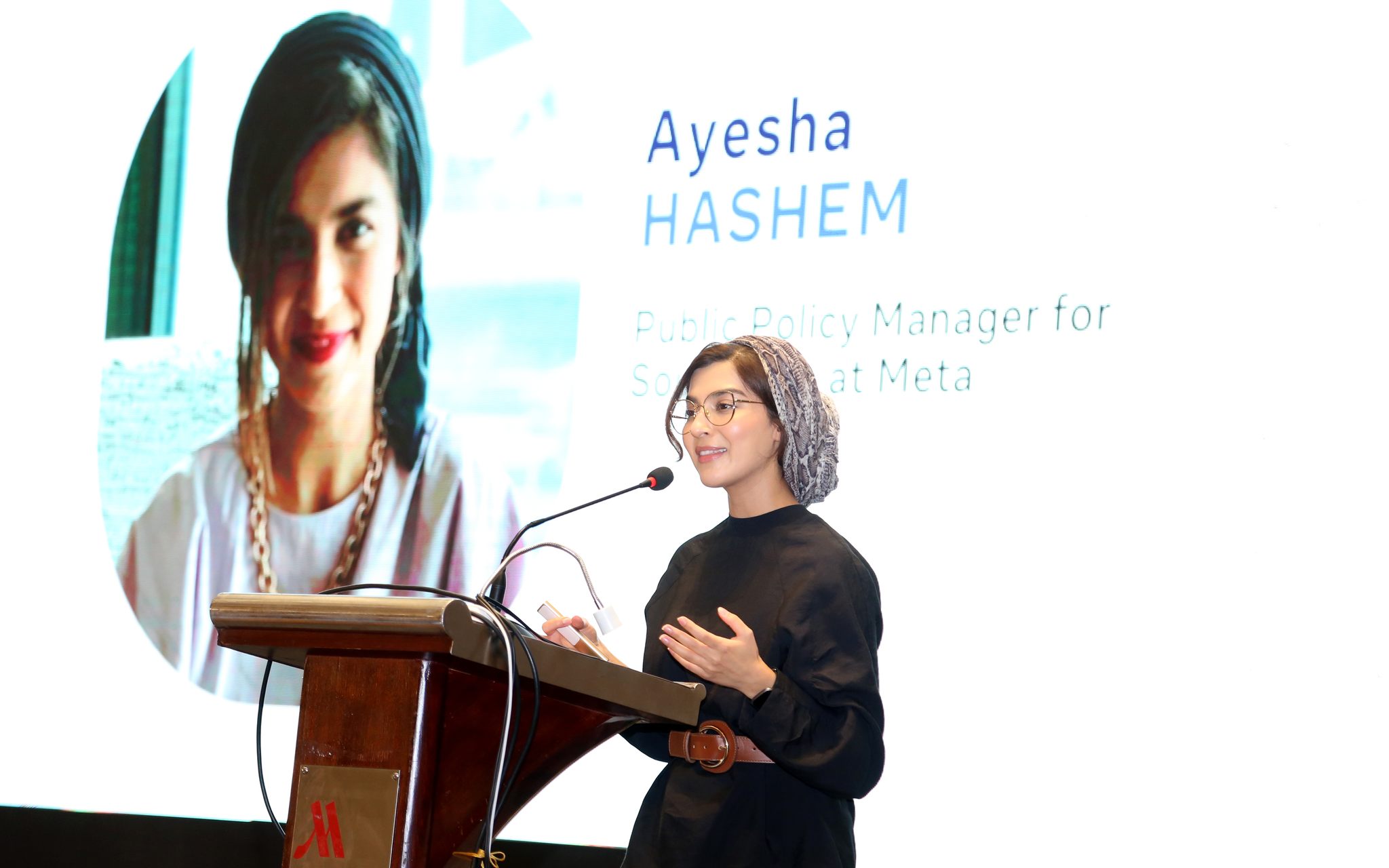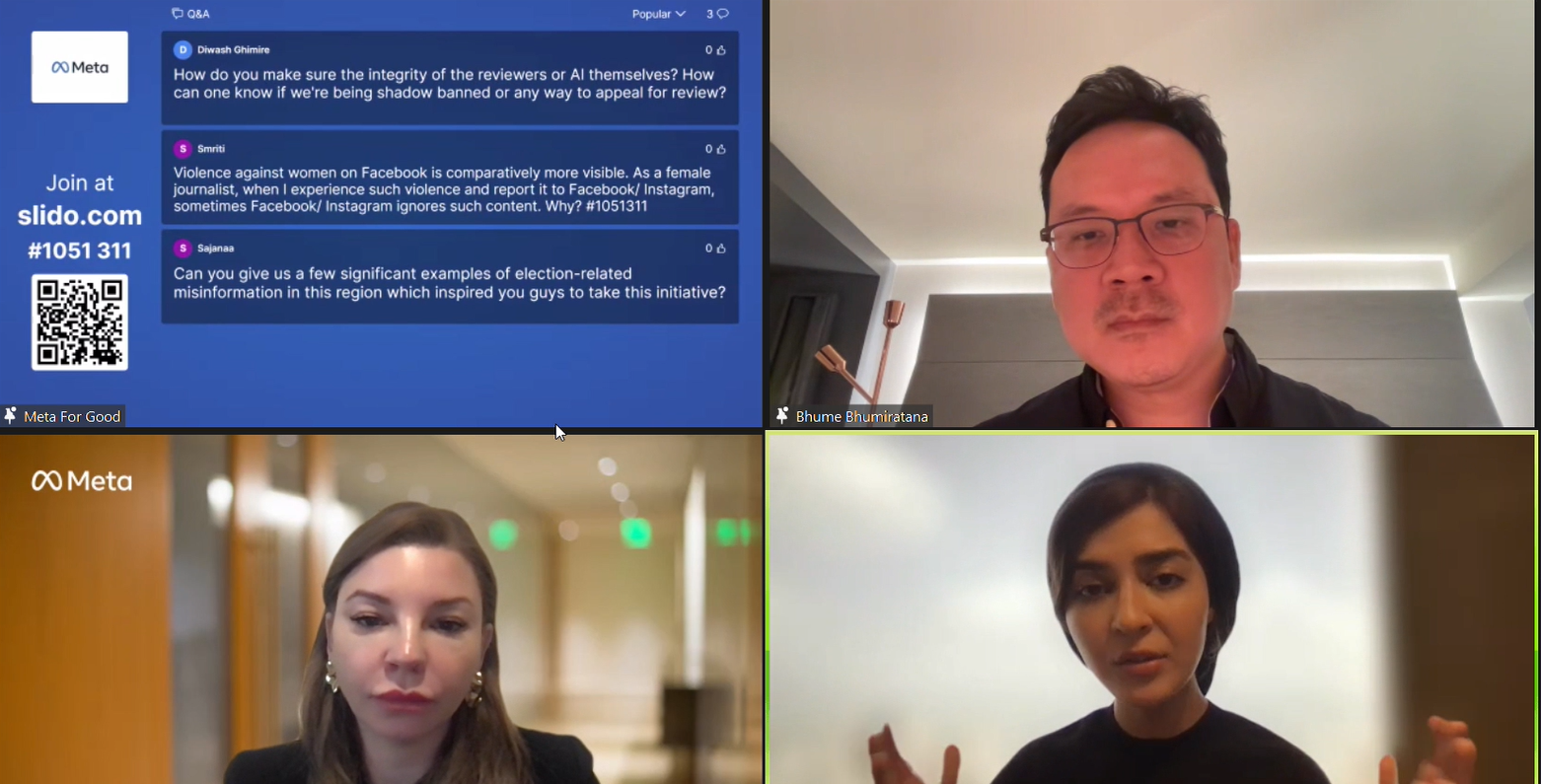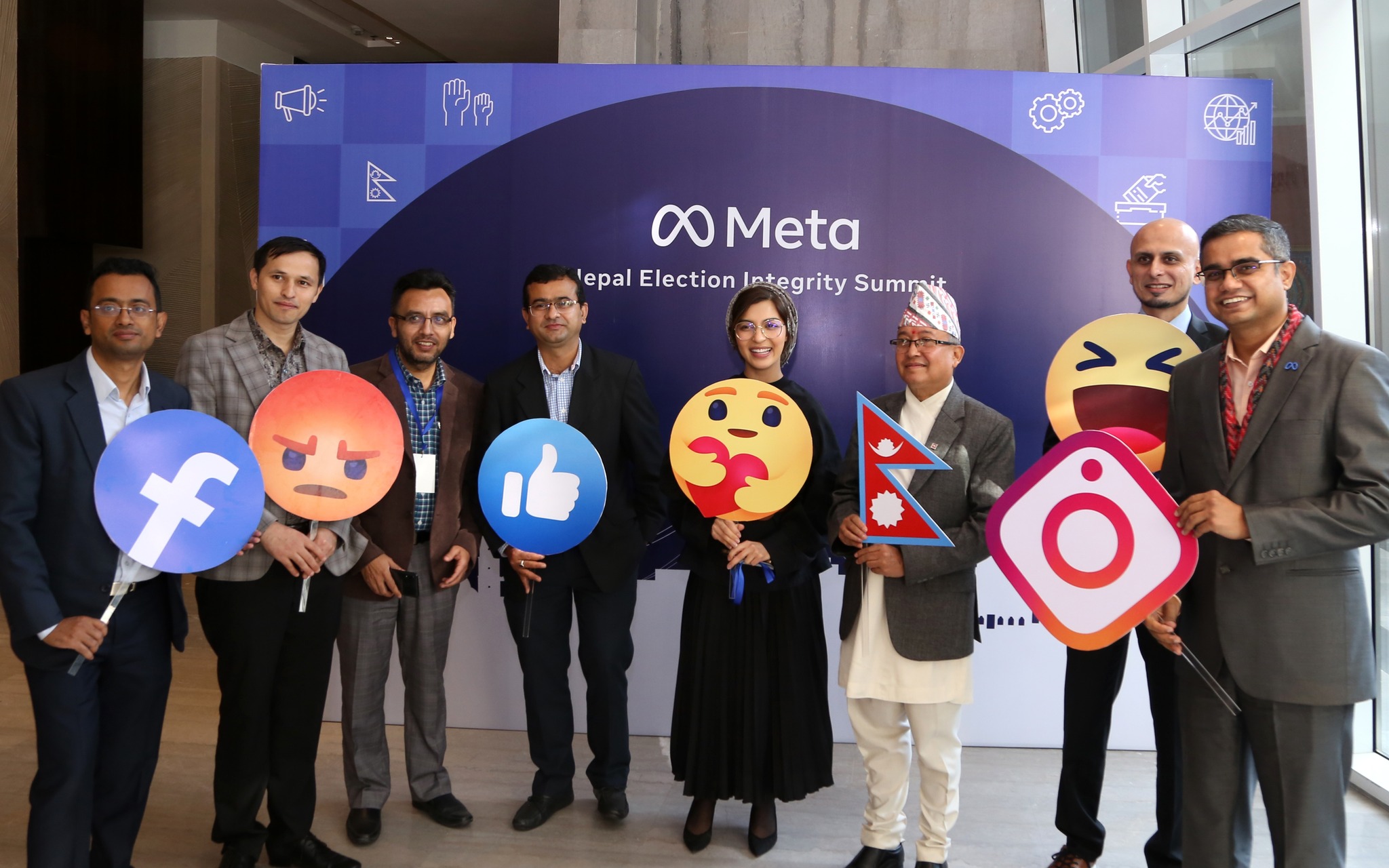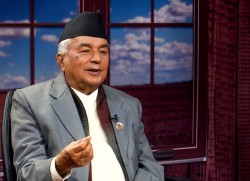Nepal

Are you getting heavily influenced by news and information flooding your Facebook’s news feed ahead of November elections? Or information circulating your WhatsApp or Instagram accounts?
If that is the case, then think again. Facebook owner Meta officials say users must be able to separate misinformation from information before making an opinion. And that’s not very hard, if information shared by Meta officials during a webinar for Nepali journalists on Thursday is anything to go by.
Meta is the company behind Facebook, Instagram and WhatsApp, and its webinar was part of Meta’s election integrity programme launched ahead of twin elections that Nepal is organising on November 20.
As election approaches, Meta officials warned, misinformation, disinformation and fake news will grow, as will incidents of harassment while reporting on the election related issues.
Meta has joined hands with Election Commission Nepal too. For the first time the commission has included misinformation, hate speech, fake news and political advertisement as well as foreign bodies meddling in the elections in its election code of conduct.
Working together with Meta and other social media giants such as Twitter and TikTok, it says, it is actively working to crack down on any of such activities.
As per Meta officials the issues that Facebook users and journalists must be aware of password protection and privacy tools. That, they say, will go a long way in tackling misinformation and hate speeches.
Meta’s representatives suggest Facebook users to familiarise with Meta’s policies regarding content management, profile safety tools and resources.
Tools and methods:

-
Content Management
Content policy associate manager Raghav Ranganathan discussed the community standard policies that is implemented across Meta’s platform to flag and control misinformation and hate speeches. He also gave cautionary measures and tools to control such posts on the platform, where one can report and flag such posts that will be sent to Meta for a review.
Ranganathan said: “At Meta, we employ remove, reduce and inform policy, to cope such misinformation.”
With this policy, Meta will straight out remove some content, while reduce the reach of few posts and inform or give more information to certain content (that need explanation).
-
Attacks
Besides activists, journalists will be the ones who will get a lot of cyber-attacks, be it hateful and derogatory words to phishing attacks. Controlling one’s exposure to such people and posts is possible as per the Meta’s representatives.
Such tools range from downright blocking the accounts of such individuals, to limiting those comments. There are also websites like virustotal.com which will scan the links one receives for any phishing attacks.
Bhume Bhumiratana who leads the cyber security policy at Meta said: “Keeping your posts reach to friends and family that don’t need to be public, you can prevent a lot of phishing attacks.”
-
Password protection
Password is the first line of defence for one’s social media presence. Until one uses two-factor authentication or authenticator apps there is always a chance that the account can be hacked easily with the password.
There are ways to strengthen the password
-
Resources
Meta “really values” safety of active Facebook users including journalists, especially those who work in vulnerable fields. They also mentioned journalists can access various tools and resources available on their website that range from safety for women journalists to funding for journalists.
Malina Eulund of safety policy team at Meta said: “These resources don’t limit to Meta’s website; we’ve partnered with non-profit organisations like StopNCII (stopncii.org) to detect and prevent transmission of abusive contents.”
Here, NCII stands for Non-Consensual Intimate Image.On that website, one can request deletion of non-consensual images from Meta’s platform.

Meta officials say as the election day nears, misinformation, fake news and abusive contents will grow and they could influence voters and swing votes.
Following the US Presidential Election of 2016, in which fake news and misinformation were allegedly used to swing votes, big tech companies like Meta (previously Facebook, now parent company of Facebook) vowed to tackle such election meddling globally.
Ayesha Hashem, public policy manager at Meta said the roles of ECN, government, civil society and journalists are helpful in establishing the integrity of the upcoming election. On top of that, she added that journalists can advocate on foul plays in elections and journalists’ safety is a “massive priority” to Meta.
Also read: Facebook-owner Meta, EC join hands to fight misinformation
Also read: Five ways to protect your social media accounts from snooping hackers






